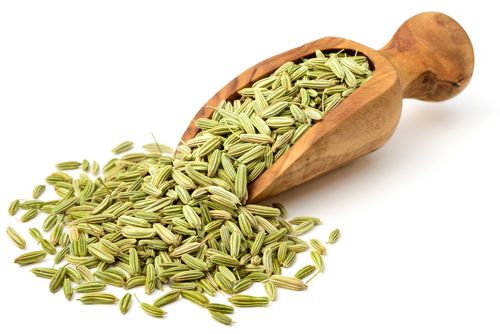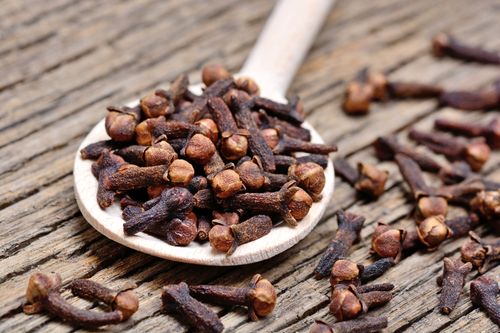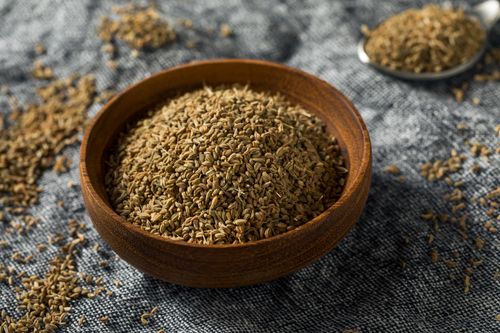We all have experienced that burning sensation in our throat or stomach after eating something spicy or hot. This uncomfortable feeling is what people call acidity or acid reflux. It is possibly one of the most common health conditions. Incidentally, it is also extremely uncomfortable when acidity or acid reflux hits you. Simple lifestyle changes and some common home remedies for acidity can help cure it completely. However, if the problem is not addressed in the beginning, it can cause some serious health problems.
What Is Acidity?
Our stomach produces Hydrochloric acid (HCL) which consequently breaks down the food that we eat. The gastric glands in our stomach naturally produce this acid. When this acid is produced in excess by the gastric glands and pushed up, we experience a burning sensation in our chest. This is what we call acidity.
Acidity is usually coupled with a painful, burning sensation in the chest or throat. It is also called heartburn. Heartburn is the most prominent symptom of acid reflux. The others are dry cough, regurgitation which is a sour or bitter-tasting acid residue in the mouth or throat, bloating, nausea, headache, weight loss, hiccups, dysphagia which is a feeling of food being stuck in your throat, sore throat, black stool and in extreme cases bloody stool or bloody vomit.
Frequent acidity or acid reflux can cause GERD (Gastroesophageal Reflux Disease) which is a phenomenon of backwash. The oesophagus is the tube that carries the food from our mouth to the stomach. When acid from the stomach gets pushed up into the oesophagus, we experience acid reflux.
Every human being experiences acid reflux at some or other point in their life. However, regular occurrence of acid reflux can damage the oesophagus and cause chronic problems and extreme issues like oesophagus cancer and ulcers.
Causes of Acidity
Our lifestyle and irregular eating habits are the main reasons behind acidity. Some food items may cause sensitivity in one, which may lead to acidity or acid reflux.
Therefore, it is important to pay attention to all the factors to determine the true cause of acidity.
1. Bad Eating Habits:
- Overeating
- Consumption of spicy food
- Skipping meals
- Eating at odd times
- High intake of salt
- Eating just before sleeping
2. Strong Medications:
- Antibiotics
- Blood–pressure medicines
- Anti-depressants
- Anxiety medicines
- Anti-inflammatory drugs
3. Certain Foods and Drinks:
- Too much tea and coffee
- Carbonated drinks
- Fried food
- Processed food
- Junk food
- Spicy food
4. Lifestyle Choices:
- Low fibre diet
- Lack of sleep
- Excessive stress
- Excessive alcohol consumption
- Smoking
- Lack of physical exercise
Symptoms of Acidity

Our stomach produces digestive acids to break down the food that we eat. Our stomach has a thick lining that withstands all these acids. When this acid reaches our esophagus, it creates burning sensations because our esophagus is not equipped to handle the acidic substances.
Therefore, we experience acidity symptoms that include:
- Burning sensation in the mouth and stomach
- Chest pain
- Sour taste in the mouth
- Bad breath
- Constipation
- Vomiting
- Nausea
- Indigestion
- Frequent hiccups
- Chest heaviness
- Difficulty in swallowing food
- Restlessness
Severe Acidity Symptoms include:
- Black stools or bloody stools
- Continuous pain in the lower abdomen
- Dry cough
- Sudden weight loss
- Persistent heartburn
Diagnosis
Acidity, if left untreated for a long time, can cause severe health problems. If you experience regular acidity symptoms, we recommend that you visit a doctor for proper diagnosis and treatment. Diagnosis of acidity consists of certain tests that include-
- Upper endoscopy
- X-ray of the digestive system
- Ambulatory acid (pH) probe test
- Oesophageal manometry
After conducting the above tests, the doctor can prescribe certain antacids to reduce the production of acid in the body. Medications are also provided to heal the esophagus. If the medicines are unable to control the acidity problem, the doctor might even suggest surgery in severe cases.
15 Easy Home Remedies for Acidity
Acidity can be frustrating and can have a debilitating effect on your social life. Simple home remedies not only provide quick relief in acidity problems but can also cure them completely.
1. Cold Milk

Drinking cold milk provides great relief in acidity. Milk is rich in calcium and prevents acid buildup in the stomach.
2. Coconut Water
Coconut water is rich in electrolytes, which in turn balance out the excessive acid production.
3. Black Cumin Seeds
Directly chew some cumin seeds or boil 1 teaspoon of them in a glass of water and drink. Black cumin seeds prevent acidity and its symptoms like heartburns, nausea, bloating, constipation, etc.
4. Fennel or Saunf

Have one teaspoon of fennel powder with a glass of warm water for instant relief from acidity and heartburn. Fennel also improves digestion and prevents gas and bloating.
5. Lukewarm Water
Drink lukewarm water on an empty stomach in the morning and at bedtime. It boosts digestion. Subsequently, this helps relieve acidity and its symptoms.
6. Cardamom
Chew one cardamom every day to get rid of acidity, indigestion, and gastric problems.
7. Watermelon Juice

Drink a glass of watermelon juice daily for instant relief from acidity and heartburn.
8. Buttermilk
Buttermilk is rich in lactic acid that soothes the stomach and normalizes acidity. Drink a glass of buttermilk with a pinch of black pepper and coriander for instant relief in acidity.
9. Ginger
Chewing a piece of raw ginger or drinking ginger tea helps prevent acidity and its symptoms. It also improves digestion.
10. Cloves

Put a piece of clove in your mouth and swallow its juices. Clove helps to relieve acidity, gastric irritability, indigestion, and nausea.
11. Banana
Banana neutralizes acidity and soothes the stomach. Consume milk and banana together to prevent acidity.
12. Papaya
Papaya consists of an enzyme called papain that reduces gastric acid secretion and gives relief from acidity.
13. Ajwain

Ajwain is an effective anti-acidic agent. It relieves acidity and improves digestion.
14. Turmeric
Turmeric is a magic spice. It works wonders for our bodies. It also helps relieve acidity and boosts digestion.
15. Jaggery
Jaggery is great for digestion. So, it can provide instant relief in acidity. It also reduces heartburn and soothes the throat or chest area. Therefore, eating a small piece of jaggery post your meal may help you soothe acid reflux problems.
Side Effects of Untreated Acidity
Acidity or heartburn is not taken very seriously, as it is a normal occurrence in every family. However, if left untreated, it can cause serious side effects to your health.
- Damage to Oesophagus – When acid reflux occurs, acid flows back to the oesophagus and irritates it. Constant acid reflux can cause severe damage to the oesophagus and lead to various other complications.
- Esophageal Ulcers – Persistent acid reflux can damage the lining of the oesophagus and cause ulcers. Symptoms of Oesophageal ulcers include painful swallowing, nausea and chest pain.
- Narrowing of the Oesophagus – Oesophageal stricture is the clinical name of damage caused by the stomach acids. With excess reflux, subsequently, the acid scars the lining of the esophagus and leads to tissue build-up. Eventually, this build-up narrows the oesophagus tract, and that makes it hard to swallow food and drinks. It leads to weight loss and dehydration in the body.
- Increased Risk of Oesophageal Cancer – Constant acid reflux can increase your risk of esophageal cancer. Therefore, it is essential to address the problems caused by acidity and opt for timely treatment. Furthermore, it can damage the oesophagus largely and make it harder to treat.
- Tooth Decay – So, did you know that stomach acid can wear down the enamel of your teeth? The corrosive nature of the acid weakens one’s teeth, which then leads to cavities and decay.
Lifestyle Changes to Treat Chronic Acidity in Adults
Acidity is a lifestyle problem. Certain changes in your lifestyle can help you treat acidity problems.
- Eat smaller meals
- Avoid smoking
- Avoid alcohol
- Include fibre in your diet
- Avoid caffeine and carbonated drinks
- Avoid stress
- Lose weight if you are overweight
- Eat clean and healthy
- Sleep well
- Exercise regularly
Acidity in Babies and Children
Children and infants also experience heartburns and acidity. Heartburn in children and babies is usually a sign of gastroesophageal reflux also called GER or acid reflux. In this condition, the stomach acid flows back into the esophagus.
In infants, an immature digestive system is the cause of heartburn. Whereas in young children, being overweight, exposure to passive smoking, or eating spicy or junk food can cause acid reflux.
Symptoms of Acid Reflux in Infant and Children:
- Arching of the back during feedings
- Chest pain
- Coughing
- Fussiness
- Hoarse voice
- Painful swallowing
- Poor eating
- Sore throat
- Vomiting
- Wheezing